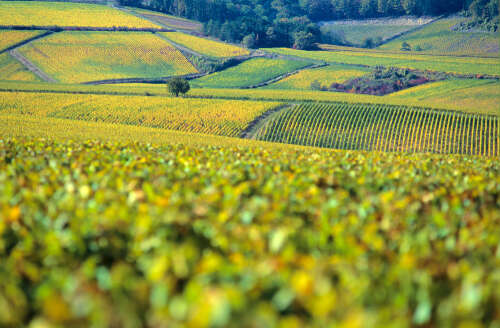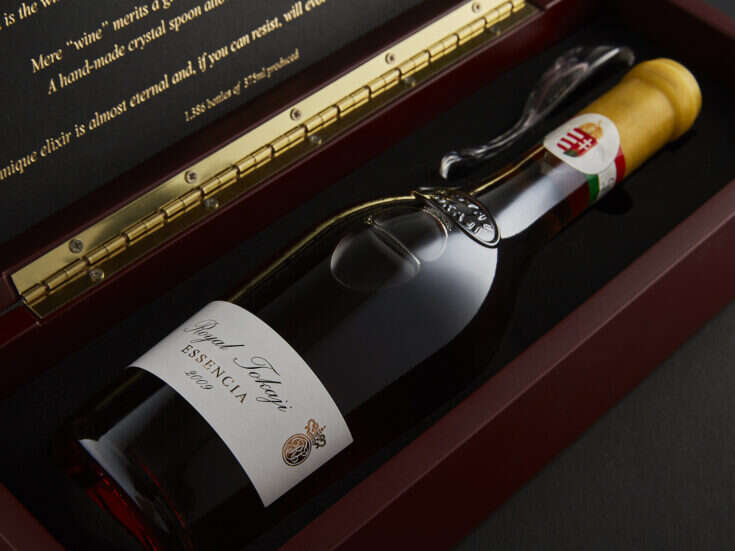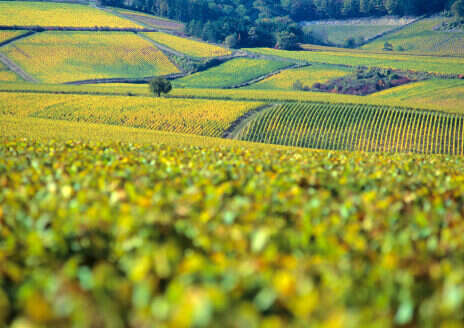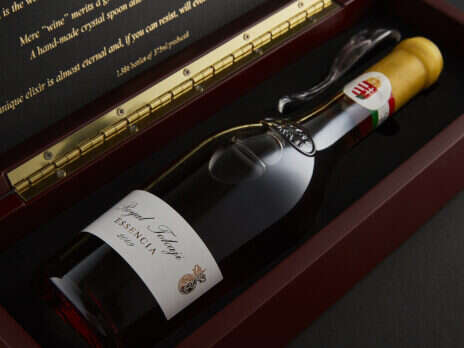
Michel Bettane
What does the future hold for wine criticism, particularly for the next generation of wine writers? A connoisseur friend of mine came up with a brilliant phrase to describe those now graduating from professional wine schools: “masters of minor wines.” The expression is sadly apt when you think of all those tasters so accustomed to entry-level wines that they cannot understand what makes “great” wines different and worthy of a higher price tag. I have often observed young colleagues award top marks to wines with no great merit, purely on the grounds of so-called crowd-pleasing qualities. There are bonus points for easily identified varietal aromas or for dry white wines with a touch of residual sugar. Some of these people take a wholly populist approach, especially when buying for supermarkets in new wine-consuming countries. Their aim is to taste wines like a newcomer-that is, their customer-not to look for wines that are approachable but still true to their origins and heritage, which is the hard part of wine tasting. Not that I think there is anything wrong with the character of wines changing over time. Wine is a part of history and must adapt to suit the shifting tastes of societies in a constant state of cultural and technological evolution. Our economies and lifestyles are based on instant gratification, on the “now” and the “new.” Climate change obliges us here by producing riper grapes that make riper wines. The rest is down to advances in winemaking technology. It is now possible to produce fruit-forward wines without resorting to artifice. Today’s wines are better made and better bottled and do not need to age for years before they become really drinkable.
But there is one thing about wine that must never change: good balance. Without it, wine risks demotion to the transient status of a soft drink. Everyday wines should take their inspiration from the balance of their nobler counterparts. Most people of course cannot afford to drink great wines due to their grossly inflated prices. Today’s young wine lovers and writers are increasingly unfamiliar with great wines-and no longer understand them when they do happen to drink them. Even more worrying, they interpret their particular qualities as flaws-affectations fostered by the liars and cheats who rave about such wines. But it is these very wines that should dictate the principles of wine tasting and form the basis of every wine-tasting course. The tactile quality of the texture and tannins in red wines, for instance, matters at least as much as the (inevitably superficial) first nose. Besides, the more fruit juice people drink, the less they understand what fermentation adds to a beverage. The purpose of fermentation is not to replicate the original fruit but to transform it, making it more complex and stable over time and, in particular, more compatible with food. If what you really want is the taste of cherries, raspberries, or plums, then nothing beats the real thing. But fruit juice- sweet, non-alcoholic, often sharp and oh so simple-does not go at all well with meat, fish, or vegetables, however prepared, and even less with savory, peppery, or spicy tastes. This explains why for centuries man has preferred to drink fermented beverages with food -as an aid to digestion, thanks to the alcohol content, and for the sake of the acidity and tannins that come with wine. Yet the tasting notes penned by today’s wine critics always give pride of place to the primary fruit aromas, and this is the basis of their selections. A Sauvignon with exaggerated aromas of passion fruit will be rated as more authentic than another more complex and subtle wine of the same age, made from much riper grapes of a more distinguished origin that will of course make a better match for food. Simplistic wines will get top marks in wine reviews, and the public who trust the “experts” will choose these when deciding what to buy-much to the delight, no doubt, of the people who make them, though even they should beware the dangers of that choice. Because once the element of surprise wears off, what began as an amusing flavor will soon become tiresome and tedious. The buyer will then move on to another grape variety, another country, or a more available brand. The overnight success will fade into oblivion-and with it, perhaps, the preference for wine over other styles of drink. One superficial pleasure is very much like another, especially if it produces the same effect for less money. Why drink wine if there is an alcoholfree alternative? I can already picture the complacent smiles of all the teetotal health freaks. What would become of our great wines then? In truth, they probably wouldn’t disappear as quickly as the minor wines. Their high price and relative rarity would, for a while, continue to appeal to a rich and snobbish minority eager to set themselves apart from the crowd. But the more such wines become a cultural exception, the more we will forget what gems of nuance and complexity they bring to the table. And so we will drink them less, leaving the way clear for mass-produced flavors. Ultimately, the oversimplifying of consumer tastes in wine will spread to food and kill gastronomy. I want to avoid this catastrophe by giving future generations a taste for the good and the beautiful. If that is the mark of a reactionary old fart, then I wear the badge with pridehat does the futurE hold for wine criticism, particularly for the next generation of wine writers? A connoisseur friend of mine came up with a brilliant phrase to describe those now graduating from professional wine schools: “masters of minor wines.” The expression is sadly apt when you think of all those tasters so accustomed to entry-level wines that they cannot understand what makes “great” wines different and worthy of a higher price tag. I have often observed young colleagues award top marks to wines with no great merit, purely on the grounds of so-called crowd-pleasing qualities. There are bonus points for easily identified varietal aromas or for dry white wines with a touch of residual sugar. Some of these people take a wholly populist approach, especially when buying for supermarkets in new wine-consuming countries. Their aim is to taste wines like a newcomer-that is, their customer-not to look for wines that are approachable but still true to their origins and heritage, which is the hard part of wine tasting. Not that I think there is anything wrong with the character of wines changing over time. Wine is a part of history and must adapt to suit the shifting tastes of societies in a constant state of cultural and technological evolution. Our economies and lifestyles are based on instant gratification, on the “now” and the “new.” Climate change obliges us here by producing riper grapes that make riper wines. The rest is down to advances in winemaking technology. It is now possible to produce fruit-forward wines without resorting to artifice. Today’s wines are better made and better bottled and do not need to age for years before they become really drinkable. But there is one thing about wine that must never change: good balance. Without it, wine risks demotion to the transient status of a soft drink. Everyday wines should take their inspiration from the balance of their nobler counterparts. Most people of course cannot afford to drink great wines due to their grossly inflated prices. Today’s young wine lovers and writers are increasingly unfamiliar with great wines-and no longer understand them when they do happen to drink them. Even more worrying, they interpret their particular qualities as flaws-affectations fostered by the liars and cheats who rave about such wines. But it is these very wines that should dictate the principles of wine tasting and form the basis of every wine-tasting course. The tactile quality of the texture and tannins in red wines, for instance, matters at least as much as the (inevitably superficial) first nose. Besides, the more fruit juice people drink, the less they understand what fermentation adds to a beverage. The purpose of fermentation is not to replicate the original fruit but to transform it, making it more complex and stable over time and, in particular, more compatible with food. If what you really want is the taste of cherries, raspberries, or plums, then nothing beats the real thing. But fruit juice- sweet, non-alcoholic, often sharp and oh so simple-does not go at all well with meat, fish, or vegetables, however prepared, and even less with savory, peppery, or spicy tastes. This explains why for centuries man has preferred to drink fermented beverages with food -as an aid to digestion, thanks to the alcohol content, and for the sake of the acidity and tannins that come with wine. Yet the tasting notes penned by today’s wine critics always give pride of place to the primary fruit aromas, and this is the basis of their selections. A Sauvignon with exaggerated aromas of passion fruit will be rated as more authentic than another more complex and subtle wine of the same age, made from much riper grapes of a more distinguished origin that will of course make a better match for food. Simplistic wines will get top marks in wine reviews, and the public who trust the “experts” will choose these when deciding what to buy-much to the delight, no doubt, of the people who make them, though even they should beware the dangers of that choice. Because once the element of surprise wears off, what began as an amusing flavor will soon become tiresome and tedious. The buyer will then move on to another grape variety, another country, or a more available brand. The overnight success will fade into oblivion-and with it, perhaps, the preference for wine over other styles of drink. One superficial pleasure is very much like another, especially if it produces the same effect for less money. Why drink wine if there is an alcoholfree alternative? I can already picture the complacent smiles of all the teetotal health freaks. What would become of our great wines then? In truth, they probably wouldn’t disappear as quickly as the minor wines. Their high price and relative rarity would, for a while, continue to appeal to a rich and snobbish minority eager to set themselves apart from the crowd. But the more such wines become a cultural exception, the more we will forget what gems of nuance and complexity they bring to the table. And so we will drink them less, leaving the way clear for mass-produced flavors. Ultimately, the oversimplifying of consumer tastes in wine will spread to food and kill gastronomy. I want to avoid this catastrophe by giving future generations a taste for the good and the beautiful. If that is the mark of a reactionary old fart, then I wear the badge with pride






